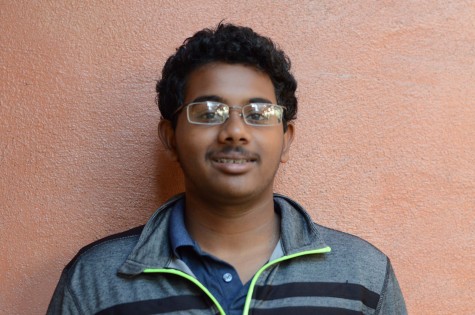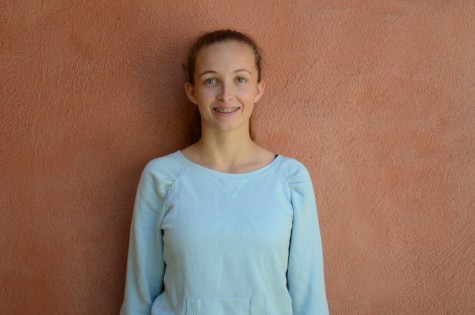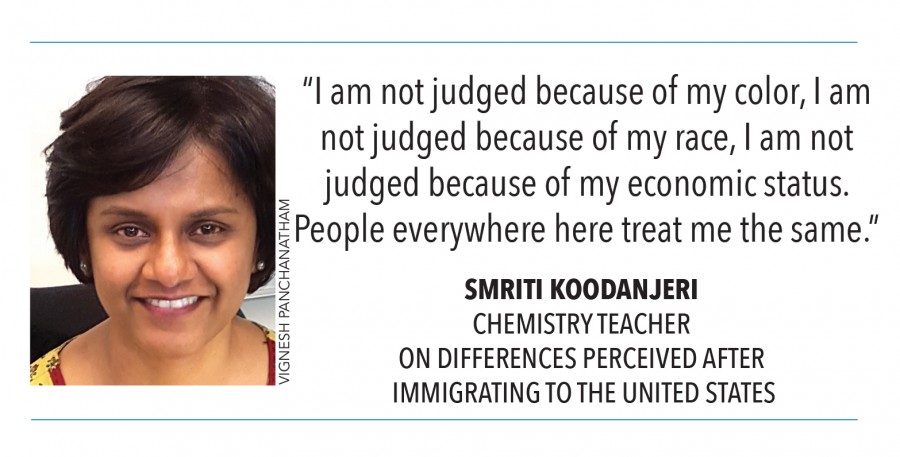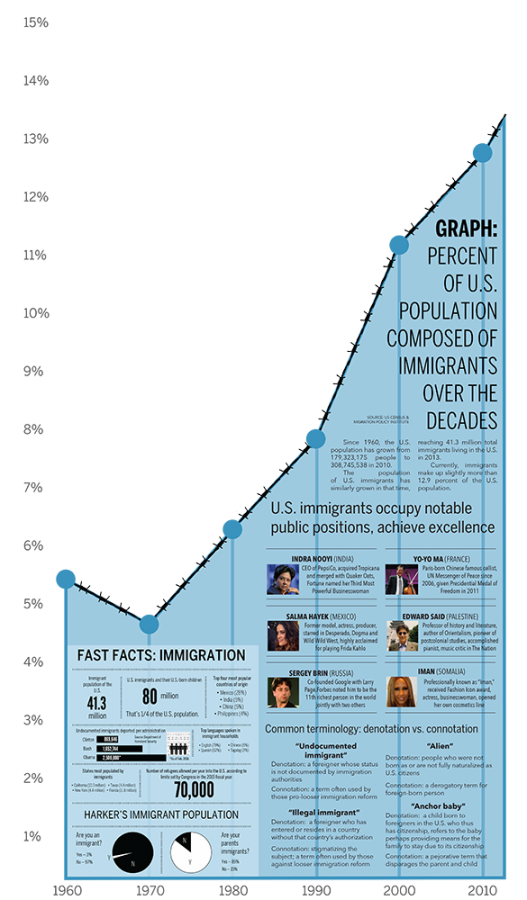Blurred borders
Immigration takes center stage as hot topic during elections
The Syrian refugee crisis, which has caused millions of Syrians to flee the country, and ongoing discussions about the U.S.-Mexico border have brought immigration to the world stage as a complicated topic with extremely diverse viewpoints and positions.
Immigration played a central role in the presidential debates for both Republicans and Democrats. In recent Republican events, Marco Rubio and Ted Cruz, an immigrant himself from Canada, have opposed each other’s policies, and Donald Trump has continued to advocate against undocumented immigrants. Meanwhile, Bernie Sanders has outlined a plan to legitimize immigrants already in the country, secure borders and modernize the visa process.
President Obama has been a spokesperson in the debate as well, advocating for the US to help immigrants, especially from Syria, and has taken actions to give them sanctuary. California was one of the 19 states that accepted the executive order to give Syrian refugees sanctuary.
“Honestly, I agree with Obama’s perspective as of now, I don’t think that we should just target a bunch of Muslims because they are of the religion that happens to be doing these wrong things,” Sohenee Banerjee (10) said. “There’s a lot of good Muslims out there, and they shouldn’t be targeted for that, and they shouldn’t be banned from the country until this is over.”
In addition to immigration’s political significance, the topic also has a particular resonance within Harker’s community.
Many Harker students, parents and teachers, including Chemistry teacher Dr. Koodanjeri, Computer Science teacher Anu Datar, and History teacher Roxanne Pianko are immigrants or come from immigrant backgrounds. Harker has a larger immigrant population than most private schools in the country. According to the 2012 US Census, 36.4 percent of Silicon Valley’s residents are foreign born.
“Obviously, [your perspective as an immigrant] varies greatly by culture or your place of origin or your social class or your ethnicity, but this sort of mentality of ‘let’s keep everyone out’ or ‘let’s shut the door now that everyone’s in’ is a little inconsiderate and ridiculous to try and limit that number and keep particular groups or all groups out,” said Nastya Grebin (10), who was born in Ukraine, but is now an American citizen. “It’s not the first time in history that something like this [anti-immigrant sentiment] has happened, but it is not something that we should be proud of or should support.”
During his term in office, President Obama has continuously made efforts to protect the undocumented parents of legal US citizens and residents. Obama has also deported more undocumented immigrants than any other president, a 23 percent increase in total deportations when compared to the Bush administration. With a new president on the horizon, the United States’ stance on immigration could change once again, either towards more lax rules toward immigrants or more stringent ones.
Students have expressed desires to hold events to learn about the different experiences and show support. In 2014, Interact members held fundraisers for refugees from Afghanistan. UNICEF club members will host the Snowflake Ball on Saturday to support the Syrian refugees. All proceeds will go towards the donations of food kits, water pumps and other basic necessities.
“One of the most influential things [to help with the current refugee crisis] would be having student clubs organize fundraisers,” Michael Tseitlin (11), an immigrant from the country of Georgia, said. “Definitely, it’s a problem that needs a lot of money and something we can provide here is we can fundraise and contribute to international programs. Another thing is that a lot of our students are well-equipped to speak out, to be student activists, and that’s something we can encourage. People can speak out about causes like this that they can be passionate about.”
This piece was originally published in the pages of the Winged Post on March 2, 2016

Vignesh Panchanatham (10) is a reporter who enjoys journalism due to the challenge of the writing required to expand on events eloquently. He plays chess...

Lauren Russell (10) is a reporter in her second year on staff for the Winged Post. After joining the staff for freshman year, she looks forward to continuing...


















![“[Building nerf blasters] became this outlet of creativity for me that hasn't been matched by anything else. The process [of] making a build complete to your desire is such a painstakingly difficult process, but I've had to learn from [the skills needed from] soldering to proper painting. There's so many different options for everything, if you think about it, it exists. The best part is [that] if it doesn't exist, you can build it yourself," Ishaan Parate said.](https://harkeraquila.com/wp-content/uploads/2022/08/DSC_8149-900x604.jpg)




![“When I came into high school, I was ready to be a follower. But DECA was a game changer for me. It helped me overcome my fear of public speaking, and it's played such a major role in who I've become today. To be able to successfully lead a chapter of 150 students, an officer team and be one of the upperclassmen I once really admired is something I'm [really] proud of,” Anvitha Tummala ('21) said.](https://harkeraquila.com/wp-content/uploads/2021/07/Screen-Shot-2021-07-25-at-9.50.05-AM-900x594.png)







![“I think getting up in the morning and having a sense of purpose [is exciting]. I think without a certain amount of drive, life is kind of obsolete and mundane, and I think having that every single day is what makes each day unique and kind of makes life exciting,” Neymika Jain (12) said.](https://harkeraquila.com/wp-content/uploads/2017/06/Screen-Shot-2017-06-03-at-4.54.16-PM.png)








![“My slogan is ‘slow feet, don’t eat, and I’m hungry.’ You need to run fast to get where you are–you aren't going to get those championships if you aren't fast,” Angel Cervantes (12) said. “I want to do well in school on my tests and in track and win championships for my team. I live by that, [and] I can do that anywhere: in the classroom or on the field.”](https://harkeraquila.com/wp-content/uploads/2018/06/DSC5146-900x601.jpg)
![“[Volleyball has] taught me how to fall correctly, and another thing it taught is that you don’t have to be the best at something to be good at it. If you just hit the ball in a smart way, then it still scores points and you’re good at it. You could be a background player and still make a much bigger impact on the team than you would think,” Anya Gert (’20) said.](https://harkeraquila.com/wp-content/uploads/2020/06/AnnaGert_JinTuan_HoHPhotoEdited-600x900.jpeg)

![“I'm not nearly there yet, but [my confidence has] definitely been getting better since I was pretty shy and timid coming into Harker my freshman year. I know that there's a lot of people that are really confident in what they do, and I really admire them. Everyone's so driven and that has really pushed me to kind of try to find my own place in high school and be more confident,” Alyssa Huang (’20) said.](https://harkeraquila.com/wp-content/uploads/2020/06/AlyssaHuang_EmilyChen_HoHPhoto-900x749.jpeg)




